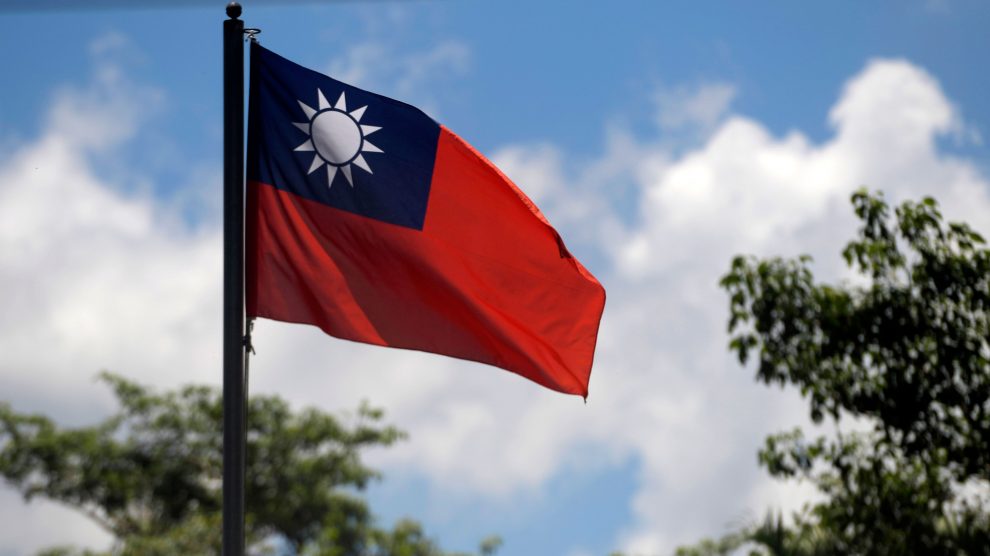Reaching out to Taiwan. It’s hard to overstate the country’s importance on the global stage. Apart from being a crucial geopolitical player and a world-class leader in the field of semiconductors, Taiwan is also a lively actor in the healthcare, advanced agriculture and artificial intelligence sectors – all fields where there is ample scope for widening the cooperation with Italy.
- Our sister website got ahold of Vincent Tsai, head of the Taipei Representative Office in Italy (i.e. Taiwan’s Ambassador to Rome), for a wide-ranging interview where he launched the idea of win-win cooperation between Rome and Taipei, using the capitals’ regional reach to turn them into nexus points between the geopolitical West and the Global South.
- Here are some key takeaways.
On Italy’s and Taiwan’s plans for Africa. Rome is set to unveil its “Mattei Plan for Africa”, hinged on promoting non-exploitative development in African States. Taipei, too, has its “African Plan” to participate in the continent’s growth – and it wishes to “seize the opportunity offered by the Italian project to play a role in the area’s development through its knowledge and expertise,” said Representative Tsai.
- Taiwan and Italy can thus “multiply their opportunities for growth” by “leveraging their similar role as a hub and reference platform for, respectively, East Asia and the Mediterranean basin, and the possibility of linking their economic sectors, taking advantage of their specific professional skills.”
- Collaboration opportunities are also evident in the regional sphere, he added. “By integrating their own platforms – i.e. New Southbound Policy, African Plan, Mattei Plan – it is possible to explore potential cooperation in the sectors of agriculture, e-commerce, energy, medicine, automotive, textiles and footwear.”
On the Belt and Road Initiative. Italy is readying to exit China’s globe-spanning infrastructural and investment project. According to Representative Tsai, “the Italian government is fully capable of making assessments on [the BRI] on its own […] What I can say is that the rules of the right approach for relations with Beijing are the same as for other countries, i.e. putting the benefits and risks (economic and political) of in-depth cooperation on the scales.”
- “In a globalised world, one cannot disregard cooperation with other countries, especially when it comes to economic powers such as China. However, one must keep in mind the importance of diversification, so that one does not fall into the risk of dependence on a single actor, nor should one derogate from the basic principles of the rule of law and democratic values in the name of profit,” he stressed.
On semiconductors. That’s one of the fields with “wide spaces for cooperation” between the two countries, argued Representative Tsai, as they share “a similar economic fabric, consisting mainly of small and medium-sized enterprises.” Moreover, Taiwan has already begun cooperating with Italy’s semiconductor industry, with one Taiwanese company investing hundreds of millions in the production of cutting-edge silicon semiconductors in northern Italy.
- Recently, the Taiwanese government also proposed “scholarships for refresher courses and academics,” and “university students and industry experts have been invited to Taiwan to study semiconductor industry issues in depth.”
On Taiwan in the United Nations. China is working to cut out the island from UN-based multilateral systems like WHO, ICAO and Interpol – much in the same way its planes and ships are practising to encircle it and hold an embargo. That’s not deterring Taipei from making its voice heard and working within the UN as a “responsible member of the international community” that has proven, over the years, to be “a positive force and a reliable partner, not only in the economic field.”
- Taiwan’s efforts in making a contribution to global welfare are widely recognised, from health to the environment, not to mention technology, where we are a world leader. And since 2018, Taiwan has set and implemented its own Sustainable Development Goals (SDGs) based on those initiated by the UN three years earlier, despite not being a member of the UN itself.”
- Furthermore, “Taiwan ranks high in major international rankings on freedom, respect for human rights, and economic growth. Last but not least, Taiwan is a sovereign country with its own currency, its own army, its own president, and its own government elected democratically by 23 million citizens, who are, however, deprived of the rights and opportunities offered to the people of the world,” remarked Representative Tsai.





